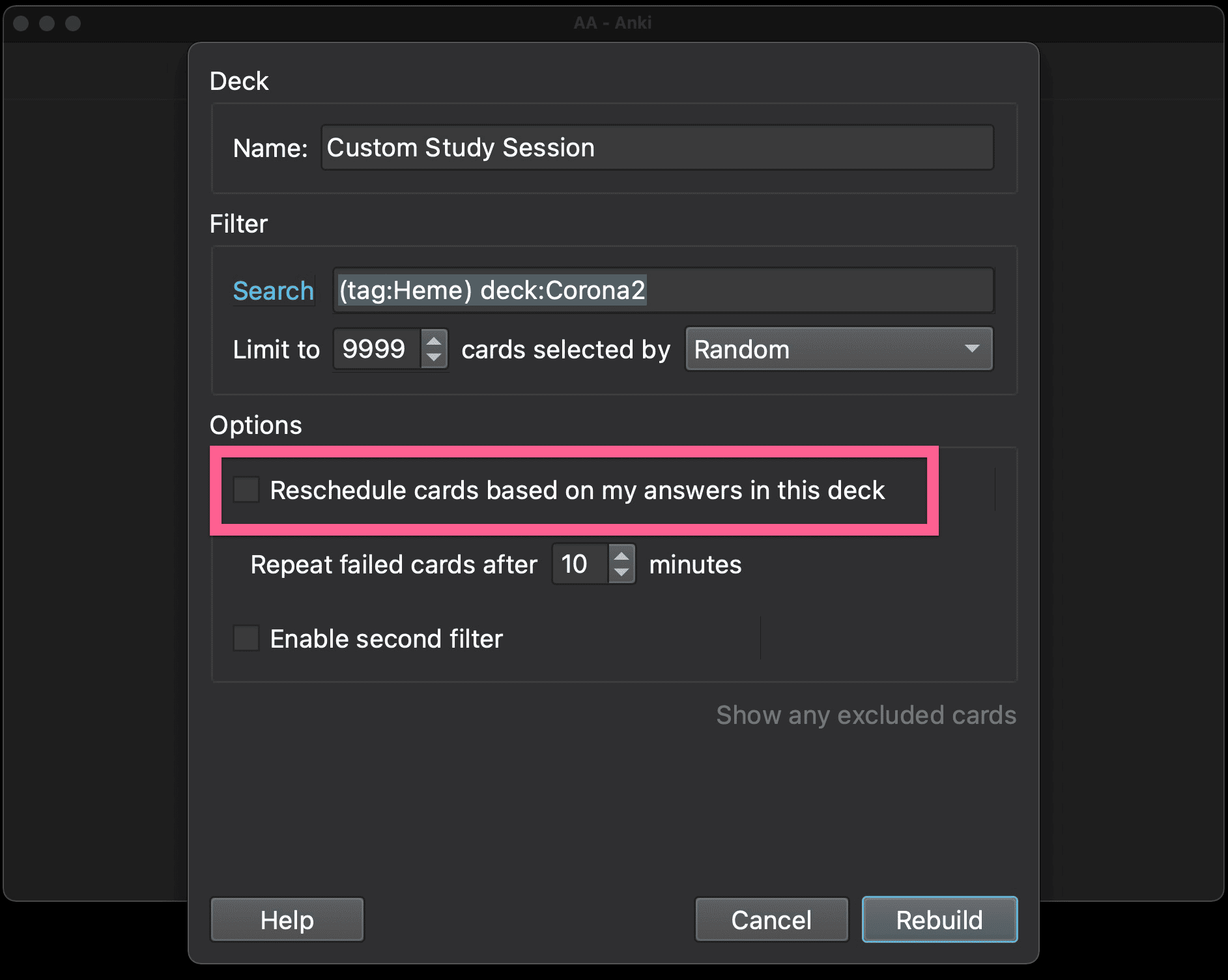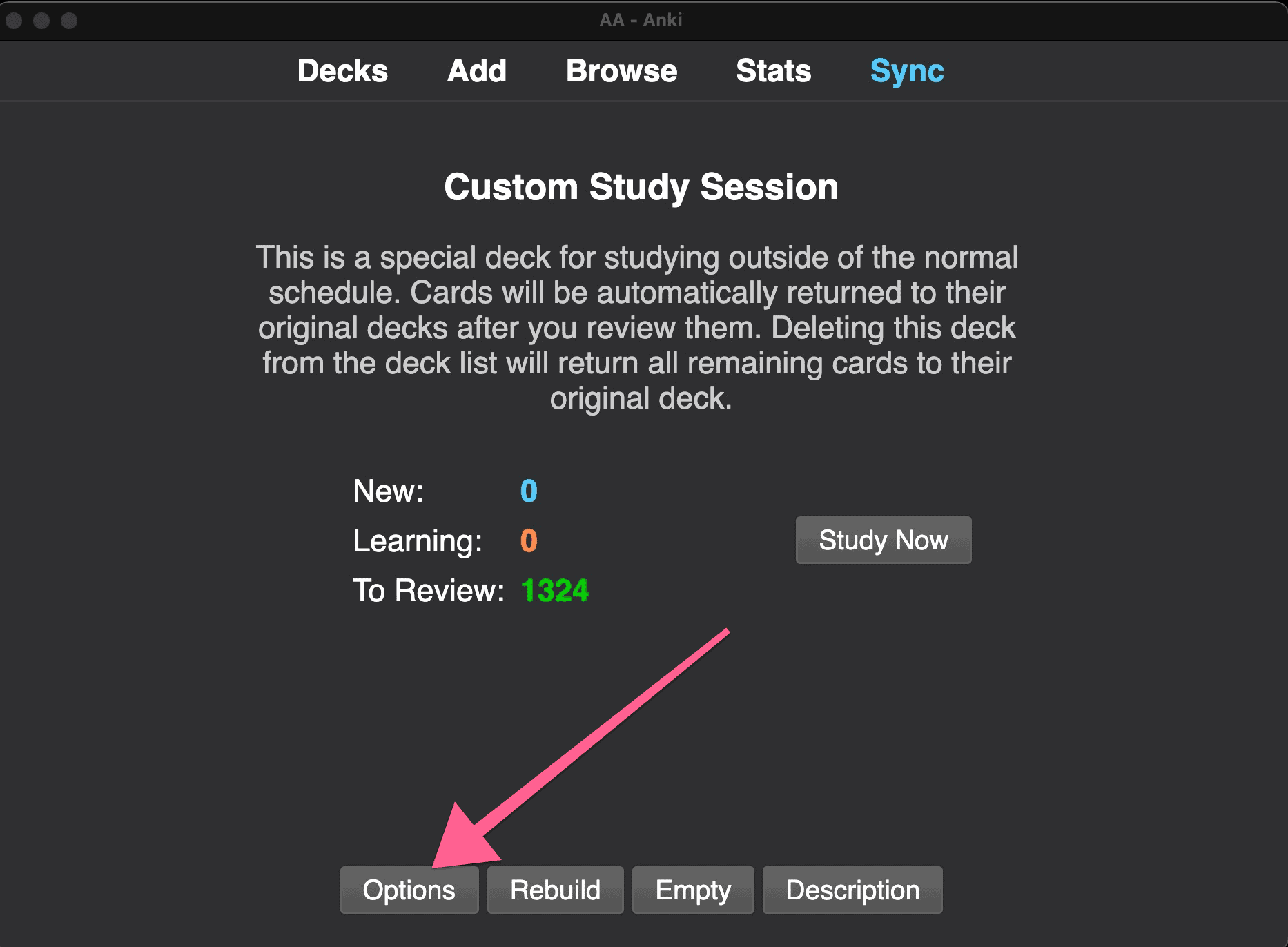

We’ve all been there. We are way behind where we want to be. Instead of staying on top of our work as we had planned, life happened. Now we have a test bearing down on us and need to learn the information, fast. Rather than using Anki for its intended use, can we use it to cram? And if so, how can we do so without totally ruining our Anki deck for future use?
In this article, you will learn:
- How to “cram” on Anki using the Custom Study Sessions,
- A way to cram without ruining your future Anki reviews,
- What exactly happens when you delete a Custom Study Session, and
- Much more
Cramming Isn’t Anki’s Intended Use
Let me start by saying that cramming isn’t the intended use of Anki. Many (most?) people think of Anki as a flashcard program that uses spaced repetition. Spaced repetition is a means of studying something so you can remember it virtually forever – in the least amount of time.
Spaced repetition sounds like magic – and if used correctly, the results really are remarkable.
However, the best way to use Anki is for it’s intended use – diligent, consistent studying over time. (In other words, NOT cramming). I’d even go so far as to call Anki a spaced repetition program that happens to use flashcards.
But Life (and Cramming) Happen
That said, life happens. No one who needed to cram for a test ever felt that was their first/best option. Rather, it often feels like life/circumstances/procrastination/etc. conspire to make cramming feel like our only way out.
So, if we need to cram for a test, how can we use Anki? More importantly, how can we use it so we don’t mess up our future reviews?

Cramming isn’t Anki’s intended use. But…life happens.
Anki Custom Study Sessions Can Be Used to Cram
The solution is “Custom Study Sessions.” In these, specific cards can be selected from a particular deck, so you can choose whether to study:
- Specific tags,
- New vs. review vs. due cards,
- A specific limit on the number of cards, and
- More
Reminder: What Are “New” vs. “Review” vs. “Due” Anki Cards?
Remember, in Anki:
- New cards (“blue” cards) – ones you have never studied before
- Review cards – cards you’ve studied at least once that may or may not be “due” (ready to study that particular day)
- Due cards (“green” + “red” cards) – ones that are “To Review”
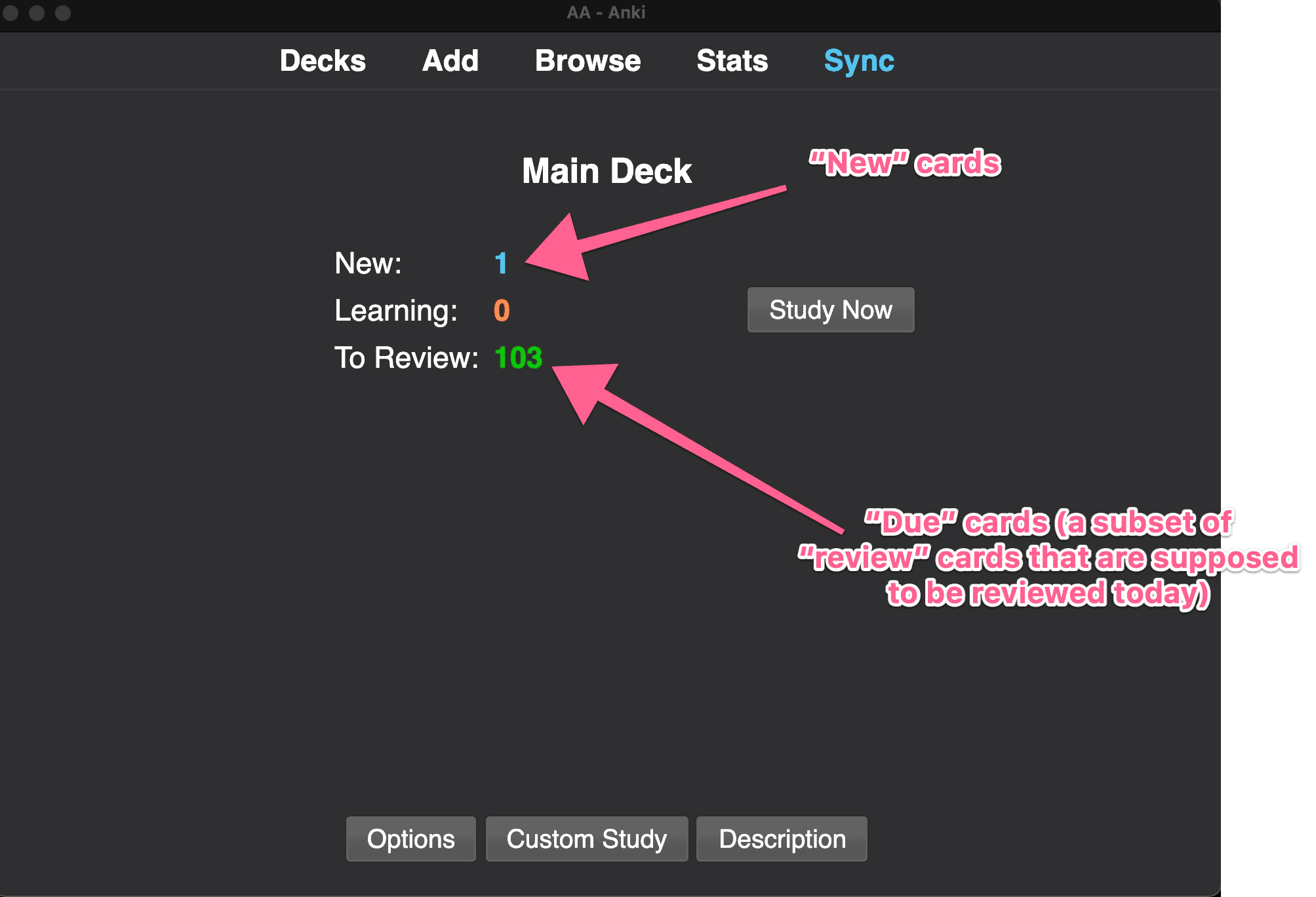
New vs. review vs. due Anki cards
How to Make an Anki Custom Study Session: Select the Deck
To make an Anki Custom Study Session, first go to the “Decks” page and select the deck from which you want to cram:
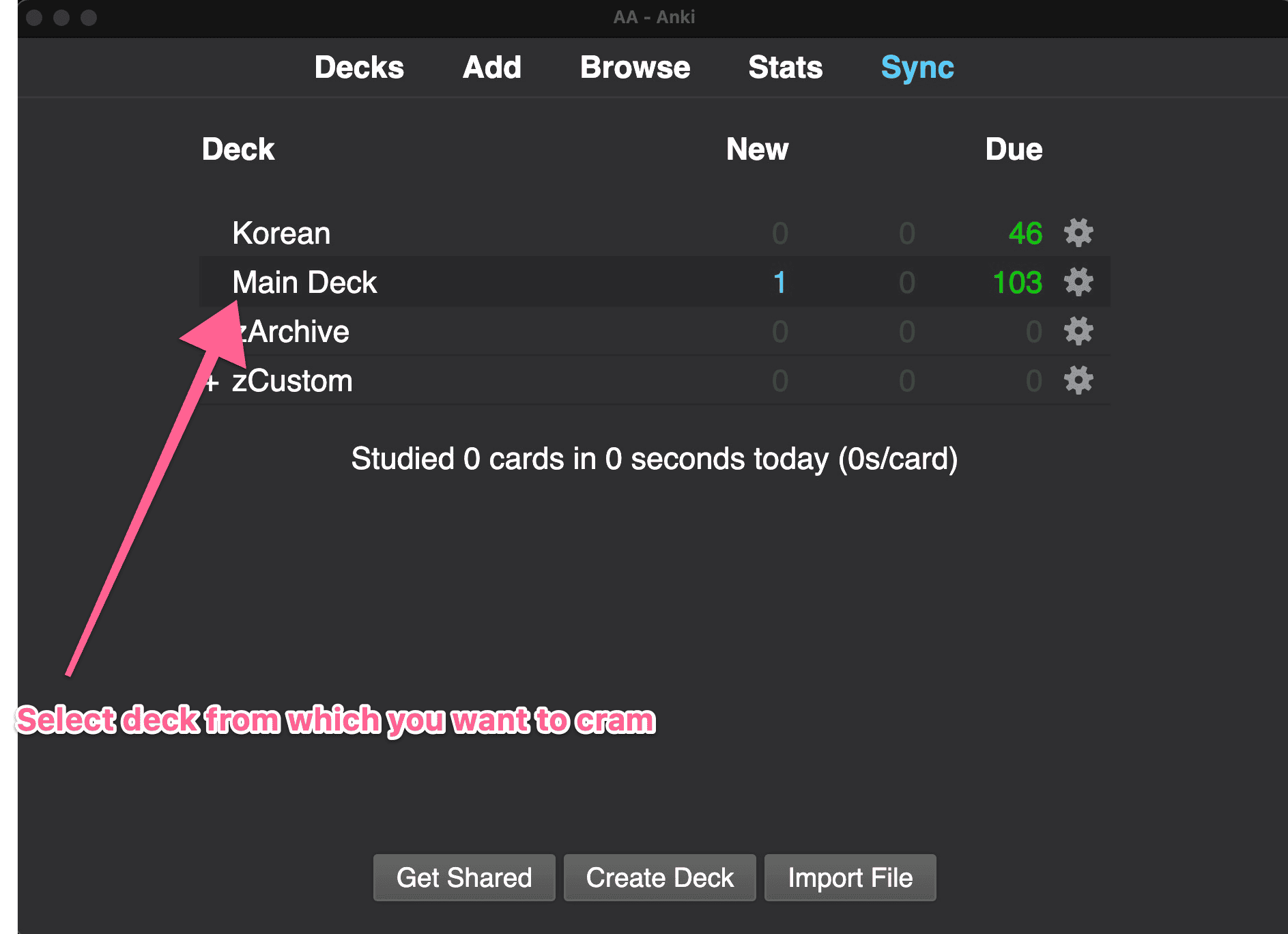
Select the Anki Deck to Cram From
Next, Select Custom Study
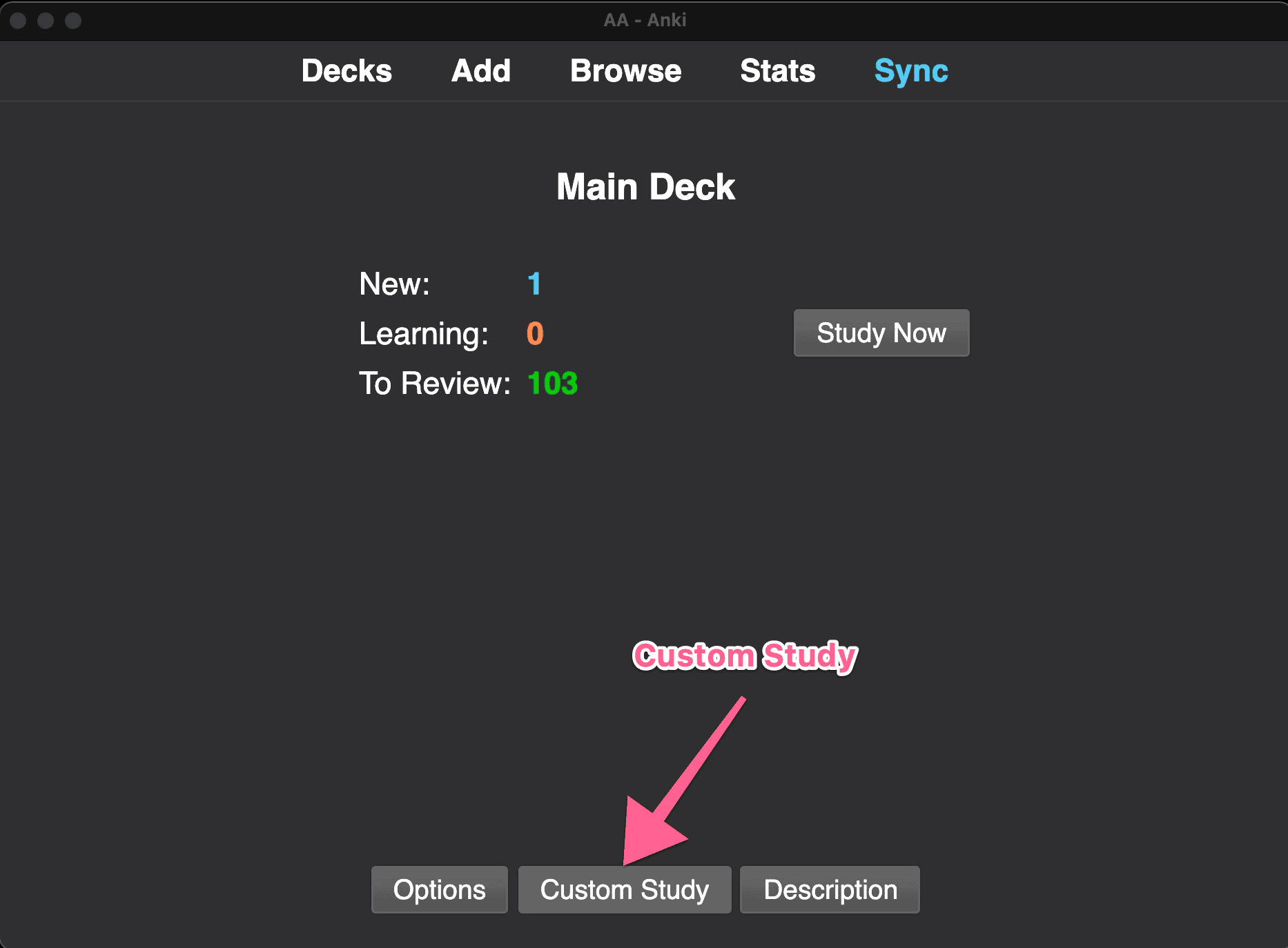
Select “Custom Study”
Choose the Number of Cards to Cram and Select “Study by card state or tag”
Usually, you’ll want to choose “All cards in random order (don’t reschedule)” to see all the cards with a particular tag(s) regardless of whether you’ve studied them before. You also have the option, however, of choosing to see only new, due, or review cards.
The “don’t reschedule” presumably refers to the fact that the cards you’ve studied will NOT change the original intervals/state for those cards. In other words, let’s say you cram a card where the “Good” interval is 14 days. Normally, if you get that card wrong, the interval would reset.
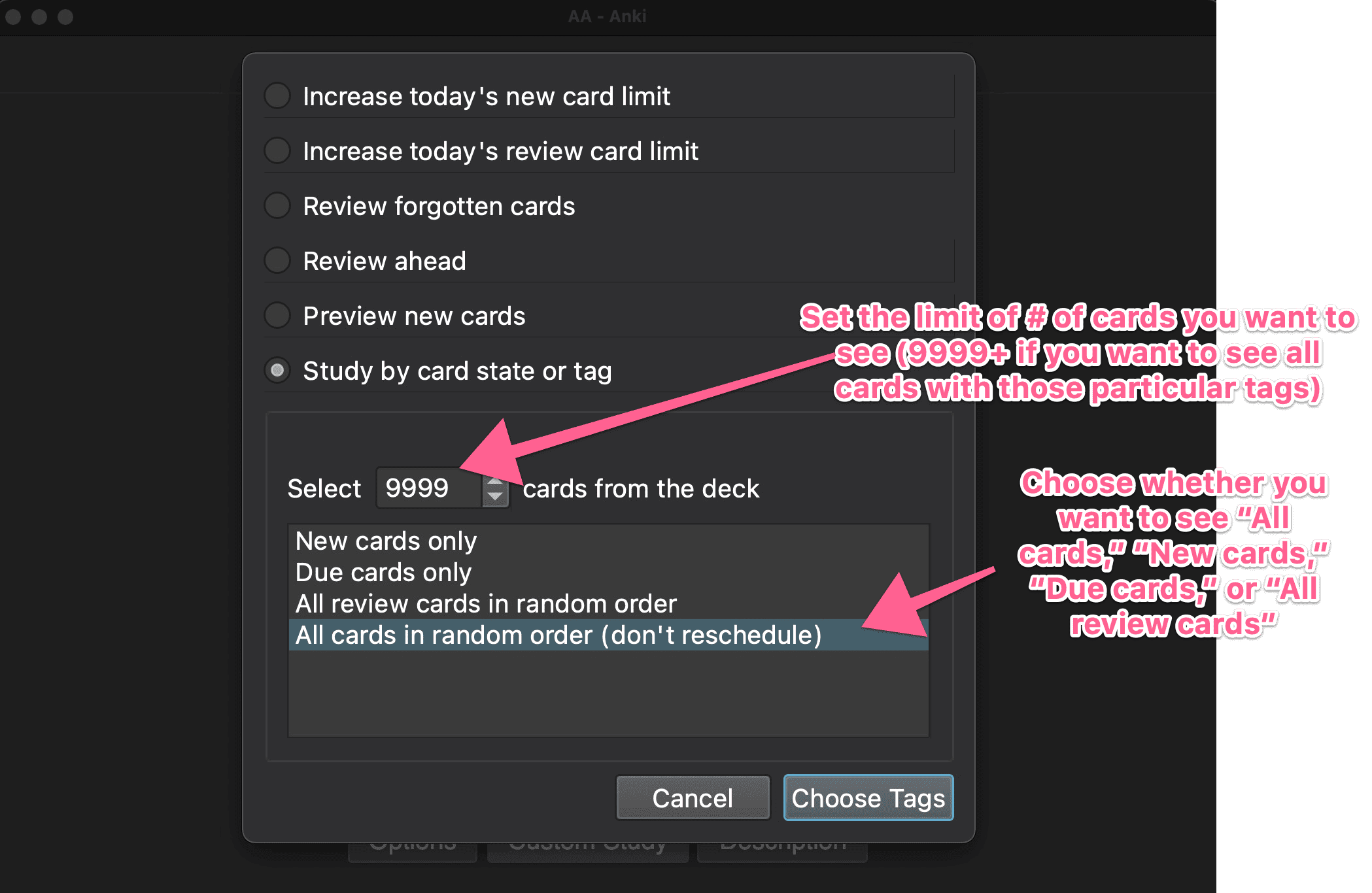
Select “Study by card state or tag” and decide 1) the # of cards to review, and 2) whether to study new (never seen before) vs. review (seen before at least once) vs. due (review cards that you are supposed to review on that day) vs. all cards (new + review)
In a Custom Study Session, if the setting is “don’t reschedule” then whatever you do in that session shouldn’t affect the intervals in the cards in their original deck. You can access these settings directly by clicking “Options,” then selecting/de-selecting “Reschedule cards based on my answers in this deck.” (For more on this option, see below).
Then, Select the Tags to Study and/or Exclude
Select tags to study or exclude.
An example would be if I have a cardiology midterm in two days. I could select all of the “review” cards (i.e., the ones that I’ve seen before at some point) that had a “Cardio” tag. In that way, any cardiology card that I had made PLUS seen before, I could study.
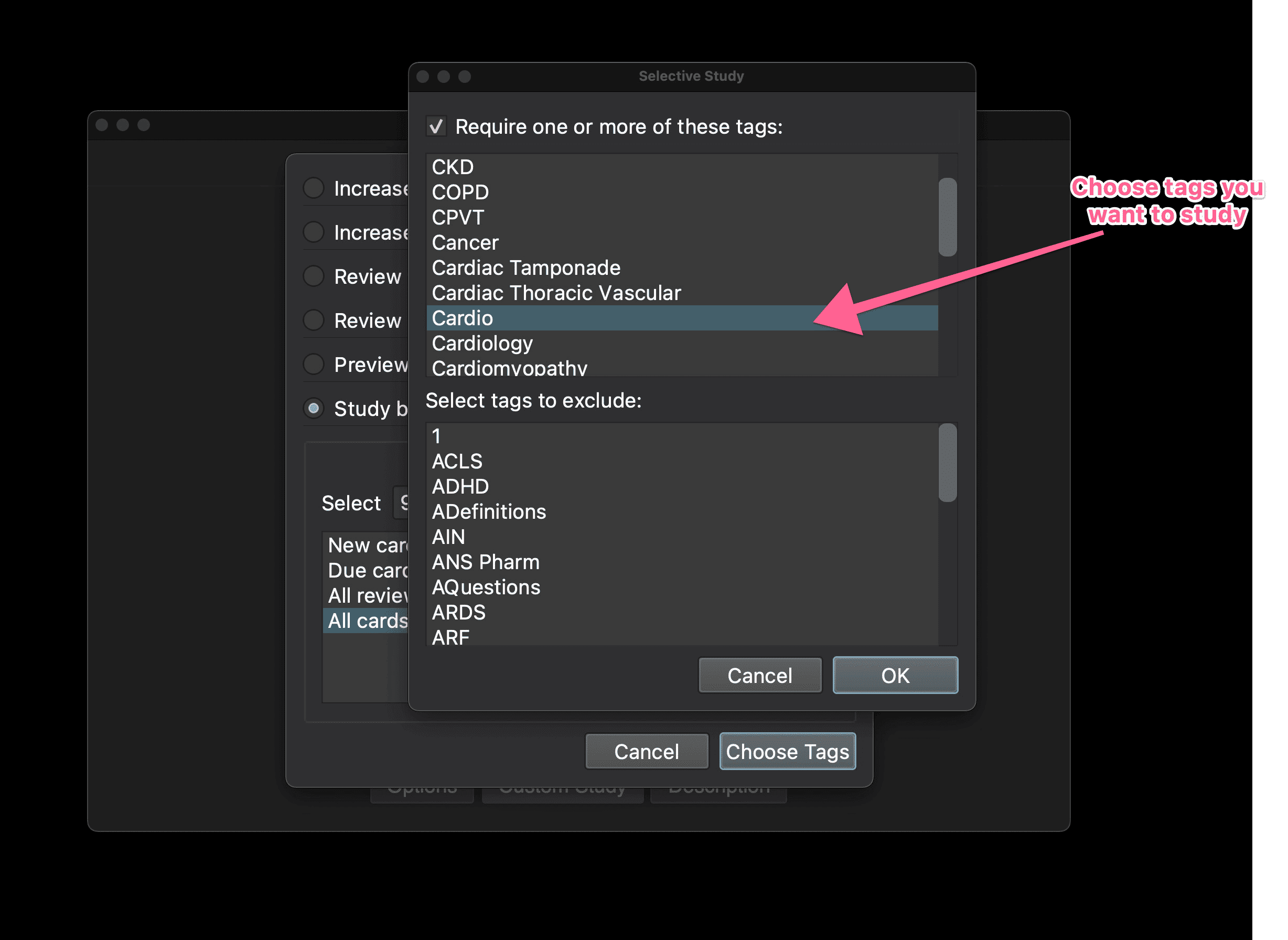
Select tags to study or exclude (e.g., select “Cardio” tagged cards, but exclude anything that has the “Pharm” tag if you want to not study cardiac pharmacology)
What if I made a bunch of cards but I haven’t reviewed them, ever? I could select “new cards only,” and study only those cards.
What if you want to study cardiology only, but NOT cardiac pharmacology, which may not be on the test? Select “Cardio” tagged cards, but exclude anything that has the “Pharm” tag if you want to not study cardiac pharmacology.
Then Cram to Your Heart’s Content
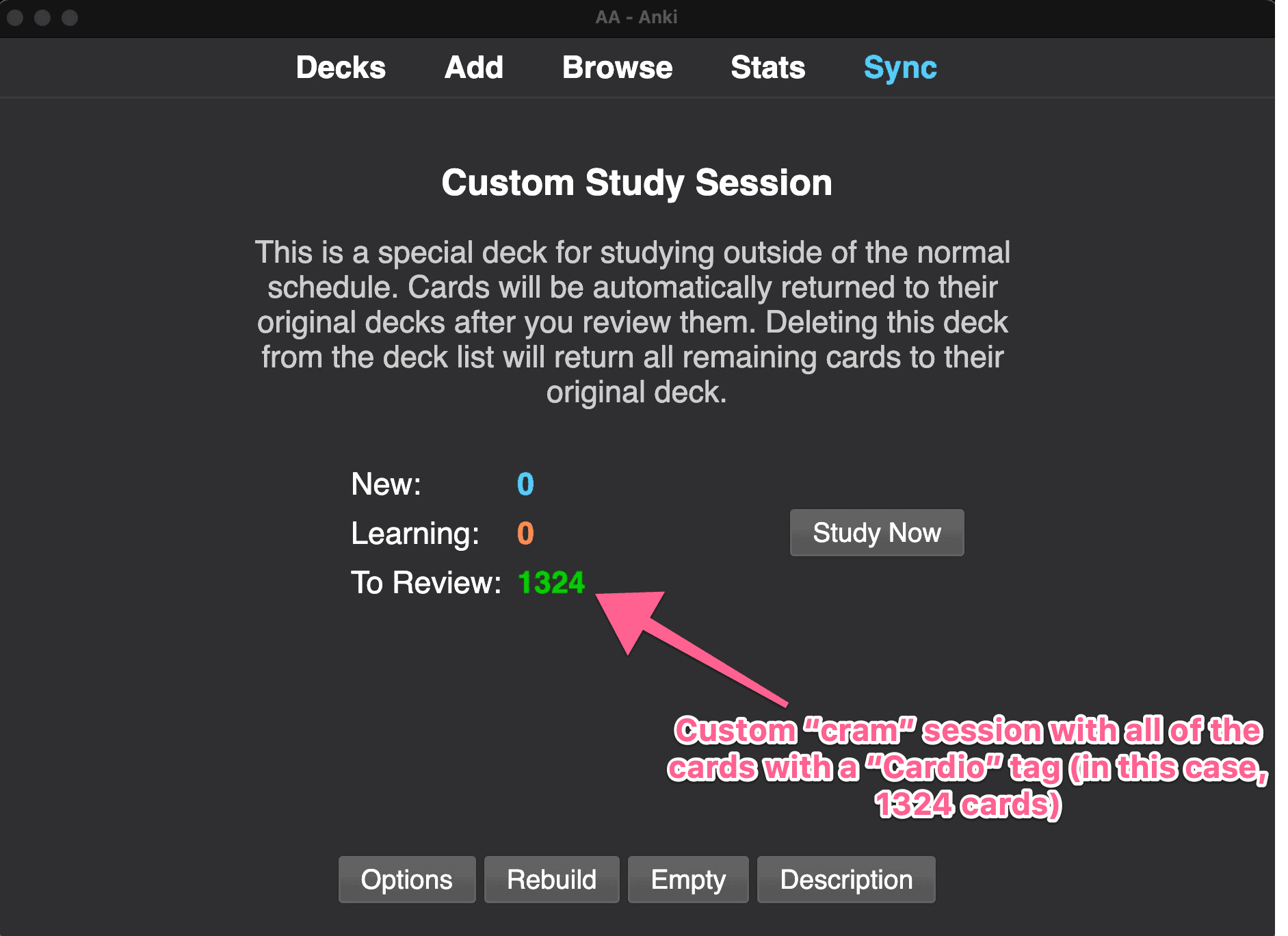
Next, cram the cards you’ve selected
Once You’re Done, Delete the Deck (Yes, Really)
To return the cards you’ve studied to the original deck, simply delete the “Custom Study Session.”
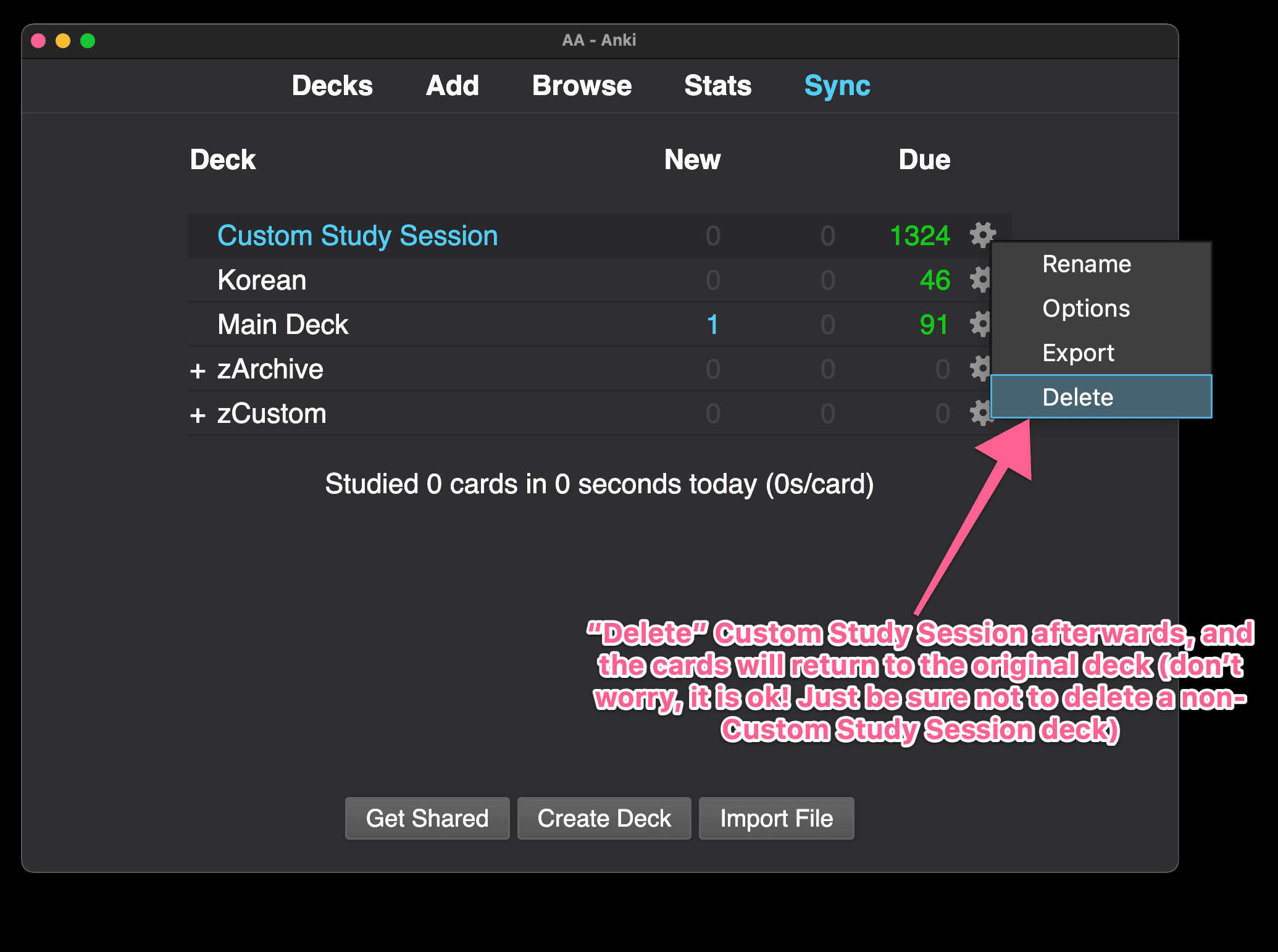
To return the cards you studied to your reviews, delete the deck (yes really)
I know that sounds really scary, but truly, that is what you’re supposed to do.
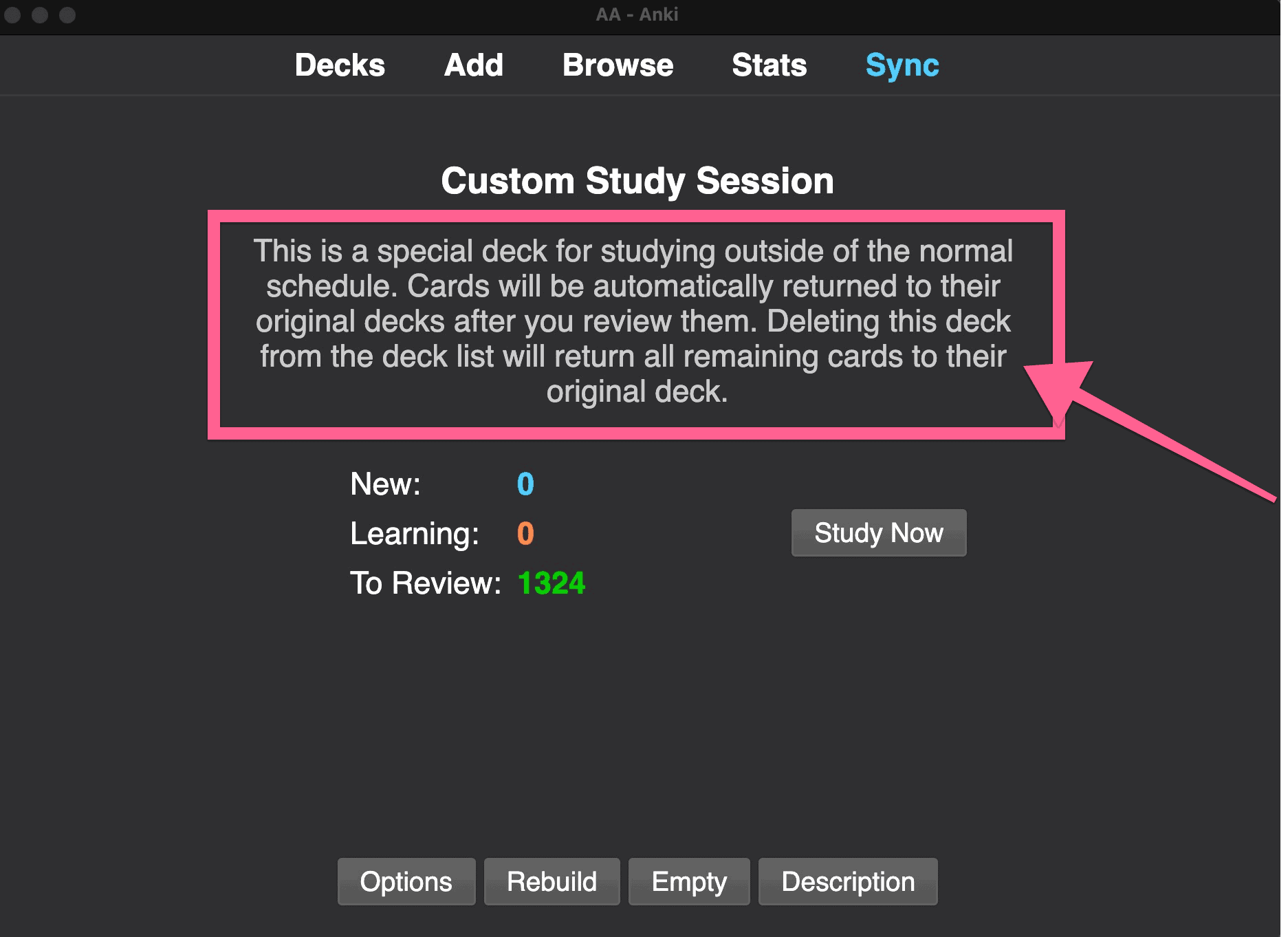
“Deleting this deck from the deck list will return all remaining cards to their original deck”
Just In Case You’re Still Nervous About Deleting Your Custom Study Session…
This is what actually happens when you delete a custom study session in Anki. (“0 cards deleted”).
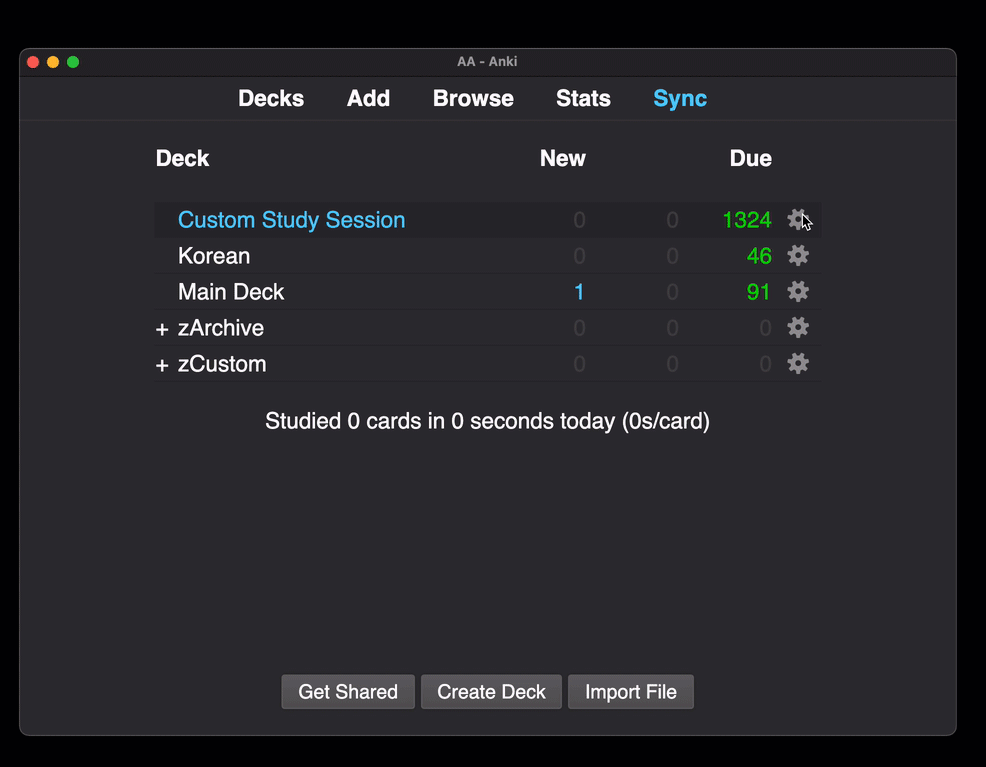
What happens when you delete a custom study session in Anki
Custom Study Session: to Affect Your Regular Reviews or Not?
The final question to answer is whether you want to have your cram session affect your reviews. In other words, if I get 20 questions wrong during my cram session, do I want their intervals to reset in my actual deck? Or would I rather have my Anki cram session simply be a one-off event, and leave the rest of my Anki deck as is?
First, select “Options”
To Make Sure Your Cram Session Doesn’t Affect Your Regular Reviews
Leave this unchecked to ensure that your Custom Study Session doesn’t affect your deck (or click it if you want to have your “cramming” count as studying for your regular reviews)
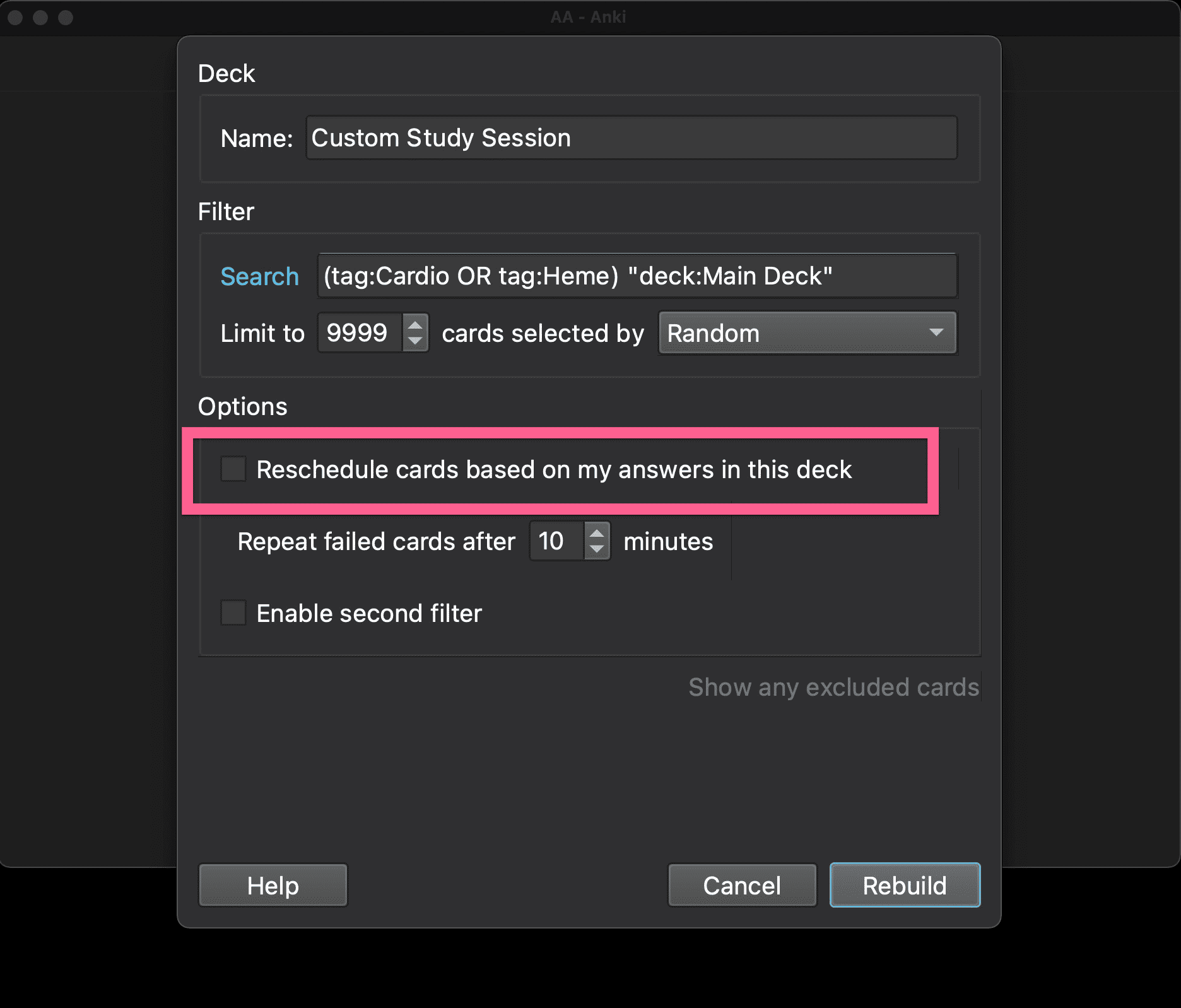
Leave this unchecked to ensure that your Custom Study Session doesn’t affect your deck (or click it if you want to have your “cramming” count as studying for your regular reviews)
Concluding Thoughts
Here we’ve discussed how you can use Anki as an effective cramming tool. While we all know that Anki is MUCH better as a spaced repetition tool, cramming is a fact of life for many of us. Making Custom Study Sessions can help us cram while minimizing the effects this has on our other reviews.
Do you use Anki to cram? What are the settings/methods you’ve found most helpful? Let us know in the comments!

